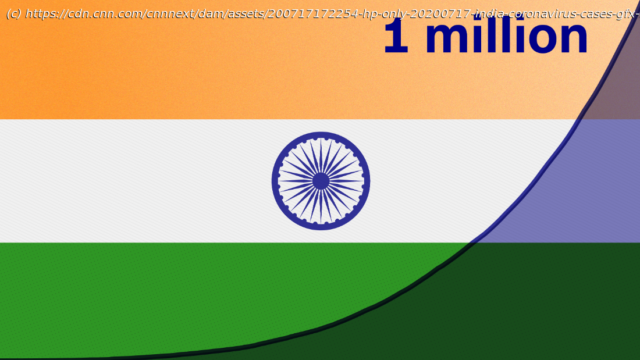India now has more than 1 million coronavirus cases. Here’s how that happened — and how that stacks up
For weeks, as coronavirus outbreaks took off in other parts of Asia, India remained relatively unaffected. It wasn’t until March 13 that the country reported its first death — and even then, it had only recorded 73 cases.
When the case numbers were still relatively low, the government took action. On March 11, India suspended all tourist visas, and on March 22, all international flights were grounded.
When India locked down on March 25, the country had around 519 cases and 10 deaths.
But when it was partially lifted on May 30, India had more than 180,000 cases — and rising.
For some in India, lockdown was difficult — if not impossible. Around one sixth of the urban population lives in densely-packed slums where social distancing was not an option. Thousands of daily wage earners were left without jobs or food — and many made lengthy and sometimes fatal trips back home to far away states.
Since the nationwide lockdown lifed, some states have enforced restrictions their own restrictions — or even resumed lockdowns. Despite that, within four months, the country has gone from just over 500 cases, to more than one million.
Sanjay Rai, the president of the Indian Public Health Association, says the lockdown helped delay the outbreak, which helped buy time for the authorities to manufacture more personal protective equipment (PPE) kits.
But those early steps didn’t allow India to avoid the outbreak altogether.
As India’s outbreak took off, it didn’t spread evenly around the country.
Around 56% of India’s coronavirus cases are concentrated in only three of the country’s 36 states or territories — Maharashtra, Delhi, and Tamil Nadu, which are each home to some of India’s most populous cities.
Start
United States
USA — mix India now has more than 1 million coronavirus cases. What does that...






